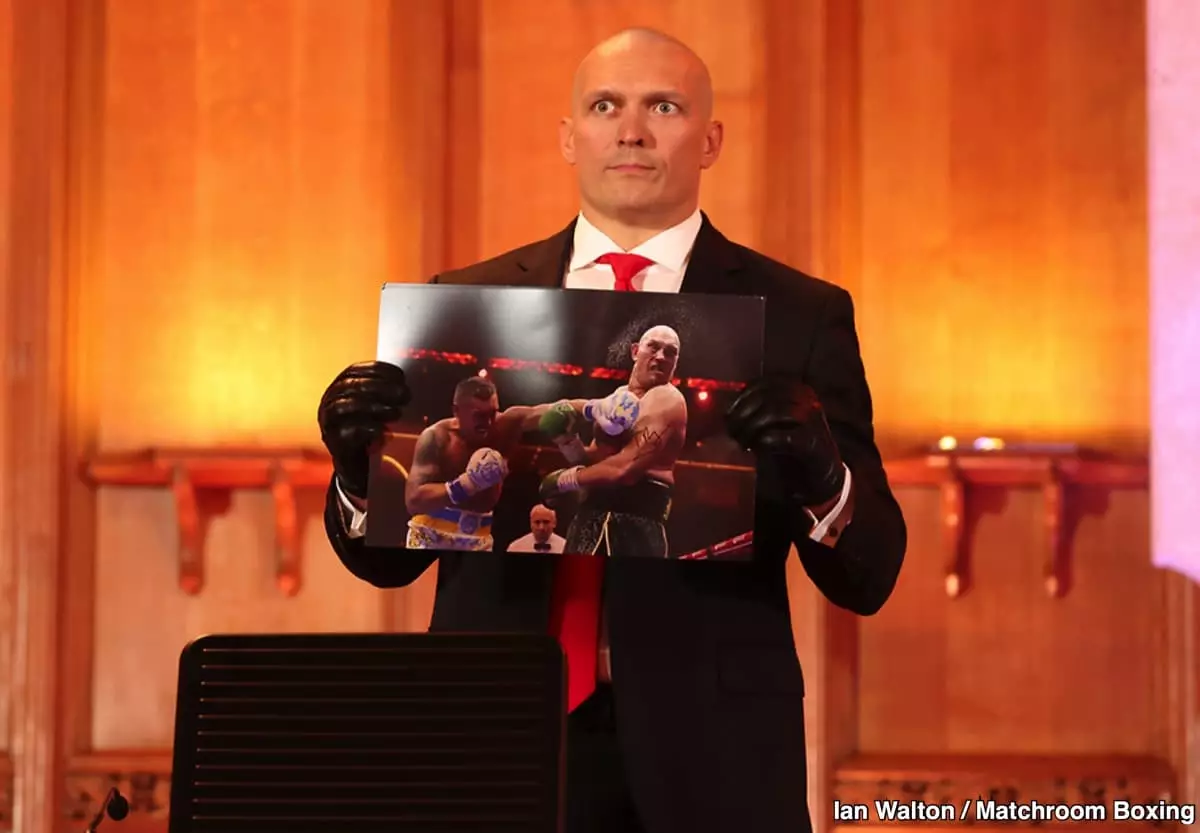As the boxing world prepares for the highly anticipated rematch between Tyson Fury and Oleksandr Usyk on December 21st, the narrative surrounding Fury has become increasingly complex. Colin Hart, a seasoned journalist, expresses a strong belief that Fury’s capabilities have not improved since their initial encounter, wherein he suffered a split decision defeat. This looming rematch raises several critical questions about Fury’s psychological state, training, and overall readiness.
Fury’s Mental Fortitude: A Doubtful Condition
In the aftermath of his defeat to Usyk, many analysts are keen to dissect how Tyson Fury, who holds a record of 34 wins, 1 loss, and 1 draw, has psychologically coped with the loss of both his undefeated status and heavyweight title. Colin Hart argues that this defeat has left a significant mark on Fury’s mental fortitude, a factor that may hinder his performance in the rematch. The loss of an undefeated record, particularly in a sport where pride and ego are intertwined, is not easily dismissed. This scrutiny opens up a broader conversation about athletes’ psychological resilience and how past defeats shape their performance in future bouts.
Compounding these psychological challenges is the shadow of Fury’s previous victories, which haven’t necessarily come against the strongest competition available. While he is praised for defeating Wladimir Klitschko, it’s important to note that Klitschko was at the tail end of his remarkable career, making Fury’s win a less-than-stellar achievement. Deontay Wilder represents a more significant victory; however, the controversies surrounding their fights, particularly the first bout, where Fury was ostensibly knocked out but managed to recover, blur the lines of triumph. Critics argue that these factors could leave Fury vulnerable against a more refined and relentless opponent like Usyk.
Usyk’s Strategic Advantage: The Storm Approaching
Usyk, boasting an unblemished record of 22 wins and 14 knockouts, has proven to be a tactical wizard in the ring. Hart points out that Usyk’s relentless pursuit of victory in their first bout nearly resulted in a knockout, signaling a distinct advantage heading into the rematch. With Fury appearing lethargic and slow, Usyk seems poised to exploit these weaknesses. Hart’s assertion that Usyk will not only replicate but potentially enhance his previous performance holds substantial weight. It begs the question: has Fury done enough to prepare for a fighter whose strategic intelligence appears to surpass his own?
The preparation and corner influence also play a crucial role in the outcome. While some suggest that Fury’s father, John Fury, may have disrupted the flow during the first bout, the reality remains that the corner dynamics alone are insufficient to account for a fighter’s shortcomings. The complexities of fight preparation extend beyond familial support; they delve into intricate strategies and readiness that could dictate the fight’s direction.
The possibility of a knockout victory for Usyk is not just speculative; it is rooted in observed dynamics from their initial encounter. Hart predicts that the fight’s trajectory could mirror Usyk’s previous dominance, culminating in a late-round stoppage. The nature of boxing, especially in heavyweight bouts, often hinges on the ability to read the opponent—something Usyk has demonstrated an exceptional talent for. If Usyk manages to withstand Fury’s size and reach advantages while employing his speed and technical precision, the prospect of a victory looms large.
It’s vital to discuss the implications of Hart’s statement about the environment within Fury’s corner during the fight. A disorganized corner can negatively impact a fighter’s focus, and this dynamic might prove detrimental. However, the narrative suggesting that John Fury’s interference played a decisive role in the outcome of the first fight oversimplifies the complexities of boxing performance. No amount of external noise can mask the inherent skills—or lack thereof—of the fighter in the ring.
Ultimately, the looming rematch encapsulates a broader story—the transition of boxing from a sport focused on competitive integrity to one where entertainment value takes precedence. Hart hints at the potential fight between Anthony Joshua and Tyson Fury should Fury emerge victorious. This scenario raises questions about the motivations behind these matchups. Are they borne out of genuine sporting rivalry, or do they serve as mere spectacles seeking to generate financial gain and fanfare?
As the upcoming rematch approaches, the implications of Fury’s potential defeat extend beyond his personal legacy; they challenge the very essence of what it means to be a champion in the ever-evolving landscape of boxing. For fans and analysts alike, the December 21st bout symbolizes a crossroads—what happens next will either reinforce or dismantle the narratives that have surrounded both fighters for years to come. The stakes couldn’t be higher for Tyson Fury, and whether he rises to the occasion remains one of the most captivating elements of this unfolding saga.

